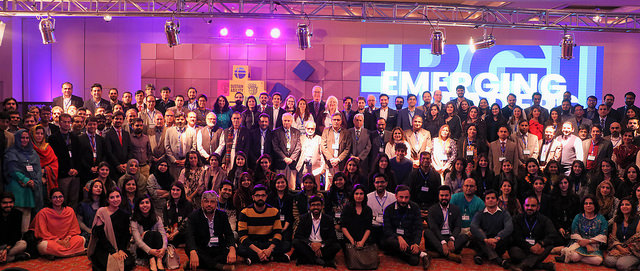Know your HIV Status and be protected
By Asim Nawaz Abbasi
Not knowing about what is going on inside your body is pretty much same as you don’t know yourself, and being unaware of the things that can cause you to die is simply like you don’t like your existence. Nailing it very rightly this year’s theme for HIV/AIDS has been put up as “Know Your Status”. People in the past have lost lives with many cases not knowing about their HIV statuses. World AIDS Day is a day to remember the millions of people who have lost their lives to AIDS related illnesses, many of whom died because they couldn’t access HIV services, because of stigma, because of discrimination and because of criminalization of key populations.
This is a dilemma that Pakistan is among countries where stigma associated with HIV/AIDS is one of the major reasons that people don’t like to talk about this disease. Several misconceptions about the virus still prevails, mentioning one that most of the people think that this virus only comes because of sexual behaviors and secondly a person having HIV/AIDS infection can’t survive for long. But the reality is completely opposite as i know a person Mr. Haerry David who is living with HIV for 32 years. Alarmingly about 19000 people are being effected with HIV+ virus every year in Pakistan. 43000 Women in Pakistan are already been acquired by this deadly disease and 99000 men above the age of 15 are infected and story ends with 3500 children among unfortunates.
“There is still time to scale-up testing for HIV; to enable more people to access treatment; to increase resources needed to prevent new infections; and to end the stigma. At this critical juncture, we need to take the right turn now.” — António Guterres, UN Secretary General.
HIV testing is essential for expanding treatment and ensuring that all people living with HIV can lead healthy and productive lives. It is also crucial to achieving the 90–90–90 targets and empowering people to make choices about HIV prevention so they can protect themselves and their loved ones.
Significant progress has been made in the AIDS response since 1988, and today three in four people living with HIV know their status. But we still have miles to go, as the latest UNAIDS report shows, and that includes reaching people living with HIV who do not know their status and ensuring that they are linked to quality care and prevention services.
Around the world, 37 million people are living with HIV, the highest number ever; yet a quarter do not know that they have the virus. Knowing your HIV status has many dvantages. It is an essential entry point to HIV treatment, prevention, and care and support services. People who test positive for HIV should be linked immediately to antiretroviral therapy to keep them alive and well and, when viral load suppression is reached, prevent transmission of the virus.
Knowing your HIV status also enables people to make informed decisions about HIV prevention options, including services to prevent children from becoming infected with HIV, male and female condoms, harm reduction services for people who inject drugs, voluntary medical male circumcision and pre-exposure and post-exposure prophylaxis.
World AIDS Day takes place on the 1st December each year. It’s an opportunity for people worldwide to unite in the fight against HIV, to show support for people living with HIV, and to commemorate those who have died from an AIDS-related illness. Founded in 1988, World AIDS Day was the first ever global health day.
I consider World AIDS Day important because it reminds the public and governments that HIV has not gone away there is still a vital need to raise money, increase awareness, fight prejudice and improve education.
Pakistani Government should acknowledge that it is imperative for young people to have access to the adequate information about preventive measures and treatments so that it will enable them to avoid high risk and decrease death rate caused by the pandemic. Our effort in providing the right information about HIV/AIDS is not only the publication of our book pertaining to HIV/AIDS but also our continuous research performed so that the latest information and data are available for young people.
Let us urge everyone particularly young people to contribute their efforts. By joining our efforts, we will be able to decrease the access gap in terms of prevention, treatment and care of HIV/AIDS.
The writer is editor at The Dayspring and member of International AIDS Society







